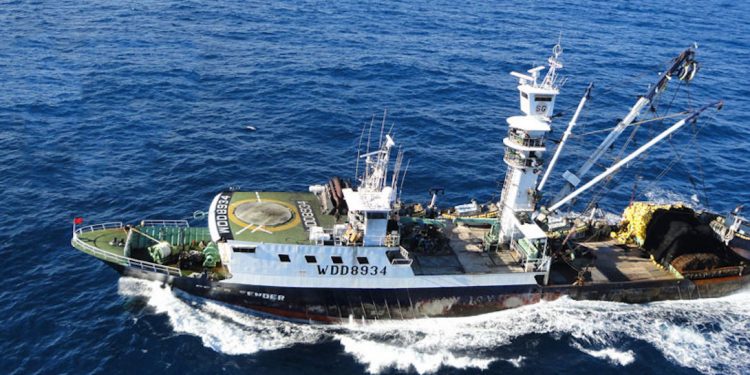San Diego-based South Pacific Tuna Corporation (SPTC) has announced that is selling more than half of its 14 US-flagged purse seiners, reducing its fleet to six by the end of the year.
The company cites the US government’s failure to ratify the South Pacific Tuna Treaty, claiming that NOAA compliance authorities have made it virtually impossible for the US distant water tuna fleet to compete against fleets from China, Korea and Taiwan.
SPTC executive director J Douglas Hines stated that unlike overseas competitors who are strongly supported by their governments, the US fleet faces policies by its own government that are non-supportive and essentially anti-industry and anti-trade.
‘Our fleet reduction is due in part to the US government’s continued lack of support and the lack of interest in ratifying the 1988 South Pacific Tuna Treaty, renegotiated in 2016,’ he said.
‘Despite our efforts to work with the Trump Administration, the National Marine Fisheries Service (NMFS) has not reciprocated and continues its overly aggressive compliance and enforcement actions.’
South Pacific Tuna Corporation’s current fleet of 14 US-flagged tuna vessels operate in the Western Pacific and supply tuna to many of the industry’s best-known seafood brands, including Bumble Bee Foods, Chicken of the Sea, and StarKist.
He commented that with the withdrawal of the US fishing fleet from the Western Pacific, the United States’ influence in those waters will continue to decline as China, Korea, and Russia take a larger role in the region.
‘In the global priorities of the US Government, the Western Pacific has become an afterthought,’ he commented.
‘As President Ronald Reagan recognised in 1988, the South Pacific Tuna Treaty is a critical step to ensuring American vessels and commerce continue to lead in the region and the world. The reduction of the US fleet will be a devastating blow for the international policy community as well as the Western Pacific sustainable fishery ecosystem.’
Twelve tuna skippers and crews are expected to be laid off, while SPTC’s headquarters team in San Diego will also be slimmed down to reflect the reduced size of the company’s fleet.
According to J Douglas Hines, the sale of the vessels represents a reduction of 70,000 tons of US-produced tuna, which will increase the US seafood trade deficit by $80M to $100M USD annually. The move also reduces the volume of sustainable FAD-free, MSC certified fish for the global tuna market, including fish supplied under the Pacifical programme.
‘SPTC will continue to supply sustainably harvested tuna to its current customers with its remaining operations,’ he said.
‘It is a sad day for us all after fighting all these years as we see the end of long legacy of tuna harvesting by US interests. However, we leave with pride of years of fighting to improve the region.’
He added that SPTC will continue to evaluate the opportunities and challenges for its remaining US-flagged purse seine operations as it continues to operate the balance of its fleet, but with guarded hope.









